Winners
Excellence Awards
Education & Skill Training
Marico Limited
Project: Nihar Shanti Pathshala Funwala’s English Literacy Program
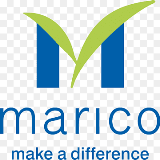
Agriculture & Rural Development
Aditya Birla Capital; Business Unit: Aditya Birla Sun Life AMC Limited
Project: Revitalizing Agriculture and Infrastructure through SHG Empowerment (RAISE)
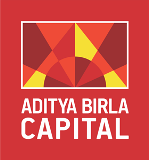
Health & Sanitation
Sanofi India Limited
Project: Kids and Diabetes in School (KiDS)
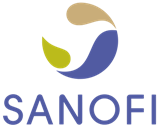
Environment
Dabur India Ltd.
Project: Herbal Kingdom
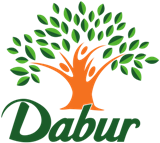
Women Empowerment & Child Welfare
Mahindra & Mahindra Limited
Project: Watershed development fund project Hatta Block, District, Damoh, Madhya Pradesh

Sports
Hindustan Zinc Limited
Project: Zinc Football

COVID-19 Relief
Jindal Steel & Power Limited
Project: Combatting the Covid-19 pandemic

Excellence Awards
Education & Skill Training
Tata Power - Tata Power Skill Development Institute
The Tata Power Skill Development Institute (TPSDI) seeks to address the demand for a skilled workforce in various sectors in India, which is growing at a tremendous rate. Through a dual motive of enhancing employability amongst youth and addressing the skill gap challenge faced by the Indian Power and allied sectors – the institute offers avenues for existing workforce, both blue & white collars in the power sector to re-skill, up-skill, and acquire skill certification. The institute conducts modular training and provides certification across a wide range of employable skills, including skills in Thermal, Hydel and Renewable Energy Generation, Transmission and Distribution and allied sectors. As part of the project, existing assets such as land, building, used equipment and used tools, are put to use, while new assets creation includes the development of labs, workshops, working models, simulators, new equipment and new tools. For Tata Power, apart from need-based technical training for employees and contractor’s workforce, TPSDI also manages Trade Apprentices Training Program (1-3 yrs) and the 2-year Operations and Maintenance Supervisory Training Program. Till date, more than 37,500 trainees from the target segments have been trained, and 74% have been placed. These are trainees who had dropped out of school. Several all-girl batches have also been conducted successfully, providing girls with employability skills. Currently, the institute trains about 14,000 trainees, every year.
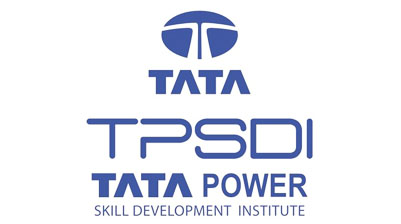
Agriculture & Rural Development
Hindustan Zinc Limited - Samadhan
As part of its approach, Samadhan focuses on farm-based development ensuring values of nature or environment through community participation. This is done through the engagement of a new generation in the management of farm through various activities like rural entrepreneurship, vegetable cultivation etc. The two main objectives of the programme are to enhance the livelihood opportunities through up-gradation and better management of natural resources and to enhance the capacity of participating families for sustainable management of natural resources. Its two main components are agriculture and livestock. The first component of agriculture includes crop production, salinity treatment; tree-based farming, high-value vegetable production, innovative practices & technologies, capacity building of producer groups and knowledge building. Second component livestock includes doorstep services through integrated livestock development centre, animal camps, mineral supplements, goat development, grass seeding and plantation of fodder trees and training of goat keepers. The programme aims to benefit, over the period of five years, about 30 thousand families.
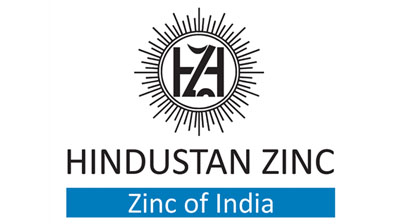
Health & Sanitation
YES Bank Limited - Livelihood and Water Security
As part of the programme, YES BANK is focused on achieving the Government’s goal of financial inclusion. In order to ensure this, YES BANK launched the ‘Livelihood and Water Security’ intervention aiming to provide affordable solutions for access to safe and clean drinking water in urban, semi-urban and rural community locations across India. The programme focuses on two main challenges: Lack of clean water leading to health risks and Time spent on sourcing clean water affecting livelihoods. With the help of innovative technology and partnerships seeks for innovative, cost-effective water purification solutions, safe and purified drinking water at an affordable/ subsidized price and skill building and livelihood. YES BANK committed to touching 100 million lives by the year 2020, through its community-focused intervention ‘Livelihood and Water Security’. Since its inception in 2014, the intervention has impacted over 90 million lives and dispensed over 16 million litres of filtered water. The Bank has installed water purification units at 155 rural, semi-rural and urban community locations and at over 681 D and E (NS6) category railways stations across India. YES BANK aims to cover an additional 330 stations by the end of FY18-19, overachieving the commitment of 1000 railway stations.
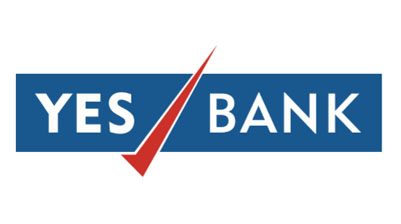
Environment
Mahindra & Mahindra Limited (Auto, Farm Equipment and Agri Sector) - Integrated Watershed Management Program (IWMP), Bhopal
As agriculture is dependent on rainwater in India – that falls under the ‘water stressed’ category of countries – Mahindra & Mahindra Limited partnered with Government of Madhya Pradesh to restore the ecological balance by harnessing, conserving and developing degraded natural resources such as soil, vegetative cover and water. The objectives of the project include Soil and Water Conservation with respect to soil erosion treatment and surface harvesting of rainwater for developing irrigational avenues, productivity Enhancement with respect to the staple food crops of the region and livelihood enhancement through on farm and off-farm activities for income generation at the household level. The target group/ project beneficiaries are the 6,673 farmer households covering 34,228 people from 35 villages of Bhopal district of the state. Under the project, key activities undertaken include Entry Point Activities (EPA), Exposure visits, social institutions (SHGs and Watershed committee), soil and water conservation works, agriculture productivity enhancement, livelihood activities and holistic development activities.
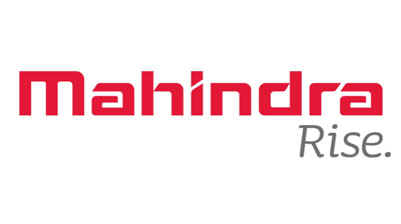
Women Empowerment & Chid Welfare
Renew Power - ‘Go for Goats’: Investing in sustainable livelihood mechanisms for underprivileged women in Jath, Maharashtra
Sangli, a district located in the western part of Maharashtra state, covers geography that is 65-70 per cent drought-prone. Here, the families migrate seasonally (November to March) every year in search of wage work, particularly for sugar cane harvesting, construction work and labour work in grape lands. The most disadvantaged sector of the population in this area is women. There are around 3000 women across the value chain in the area of operation, facing the above-mentioned challenges. The project – following a ‘bottom-up approach’ – was initiated keeping in mind the knowledge base of the women in this area so that they can take up livelihood activities side by side with their regular daily farm work, which could be a source of additional income to start with and potentially turn into a sustainable livelihood option in the long run. ReNew along with its implementation partner initiated the formation of Self Help Groups with an objective of promoting goat rearing amongst the women. For this purpose, a goat bank was established through which the SHG women could borrow goats at zero cost, nurture the livestock, sell off the offspring for income generation, and eventually, return the goats to the goat bank with an interest. The program has impacted over 200 women directly and in turn around 200 families comprising of over 1200 members.
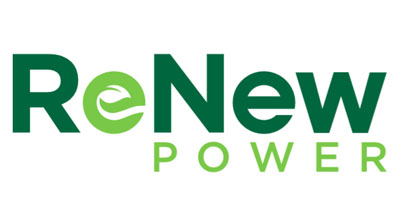
Sports
Aditya Birla Capital Limited - Rahul Dravid Athlete Mentorship Programme
The project was undertaken to fill gaps including proper infrastructure and facilities to play sport at the grassroots, access to the right coaching and mentorship, access to sports science expertise, financial support, career guidance and management services etc., in the sports eco-system to fosters. The programme has evolved from a mentorship focused model to one which looks at aspects of sports science, psychology, education along with mentorship sessions. GoSports Foundation is the implementing organisation for the project. The project currently supports 25 of India’s elite athletes across multiple Olympic disciplines, which are present across 15 different states across the country; with athletes training across the country, some even outside India, and receiving support and mentorship wherever they train. These athletes represent the cream of India’s sporting talent aged between 19 and 26 across 13 sports. The objective is to get at least 50% of them to the Olympics, Commonwealth Games, Asian Games and World Championships. The athletes are given scholarships towards their immediate sporting requirements and access to the best sports science expertise. They receive support towards high-performance training, strengthening and conditioning assessments, nutritional counselling, mental conditioning, career guidance and profile building, legal support and Public Relations expertise.
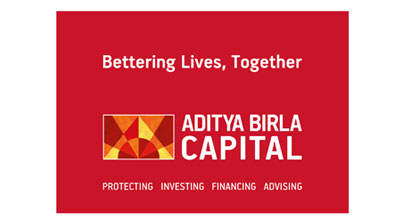
Social Welfare And Growth Awards
N.L. Dalmia Insitute of Management Studies and Research
For Empowering Social Change Through Education
NSHM Knowledge Campus
For Empowering Social Change Through Education
FUEL (Friends Union for Energising Lives)
For Empowering Social Change Through Education
SuVitas
For Innovation and Excellence in Healthcare
Excellence Awards
Education & Skill Training
Bharti Foundation - Satya Bharati School Program
The project ‘Satya Bharati School Program’ by Bharti Foundation is for underprivileged children in rural areas – started in January 2006. A total of 254 Satya Bharti schools have been set up for underprivileged children in rural areas. These schools offer quality education, without any monetary cost to more than 45,000 students and also provide free textbooks, notebooks, school uniform etc, in addition to mid-day meals to overcome any entry barriers underprivileged children may face.
This large-scale project of quality schools in villages is aimed to create a model with good practices, which can be replicated and scaled up to government schools.
The Satya Bharti School Program is being implemented in the villages of Punjab, Haryana, Rajasthan, Uttar Pradesh, Tamil Nadu and West Bengal. The Satya Bharti Schools currently provide employment to over 1,600 rural youth as teachers. Also, these schools have village women (mostly mothers) as mid-day meal vendors.
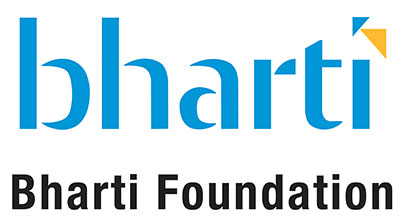
Agriculture & Rural Development
Reliance Power Ltd. - Unnati
Project ‘Unnati’ at Shahjahanpur, Uttar Pradesh (Rosa Power) and at Singrauli, Madhya Pradesh (Sasan Power) is initiated by Reliance Power Limited. The project was started on 26 May 2016 at Shahjahanpur and on 2 November 2012 at Singrauli and impacts the community members of Project Affected Villages (PAVs). The objective of the project is to improve the socio-economic conditions of the inhabitants of earmarked villages by promoting sustainable livelihood options i.e. non-farm-based livelihood interventions. While the project also aims at improving the quality of life by enhancing family income, providing sustainable and gainful employment – to the families, particularly belonging to the weaker sections of the society, using locally available resources such as livestock, agriculture, horticulture, skill development etc. The current year’s budget for Project Unnati is Rs. 34 lacs at Shahjahanpur (Rosa Power) and Rs. 60 lacs at Singrauli.
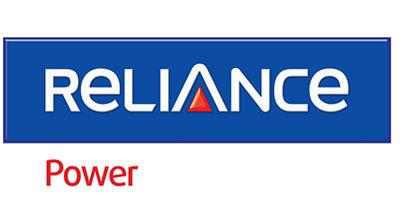
Health & Sanitation
Magma Fincorp Ltd. - M-Care - Mobile Clinic
Brief description of the project: The M-Care - Mobile Clinic’ is an initiative of Magma Fincorp Ltd. In January 2017, Magma Fincorp started a pilot project in the state of West Bengal. As part of this project, the company identified around 12 densely populated village in West Bengal which lacked basic clinic facility in a radius of 8-10 kilometres. The average population of these villages were around 5,000 per location. As of now, the mobile clinic has treated around 3,000 patient at 12 different locations, with an objective to treat around 15,000 patient by 2019.
The project also involves the local youth club or panchayat, as they assist in the setup camps. The medical team is led an expert set of doctors along with two medical practitioners and a lady doctor for female patients. The medical team is with basic test kits like BMI, Blood Sugar, ECG machine, etc. They also carry OTC medicine and give the same to needy patients at free of cost. In case of emergency or major issues, they refer them to a city hospital in their network so that the patient gets the proper treatment at a reasonable cost.
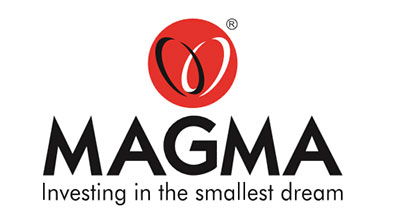
Environment
DCB Bank - Enhancing Tribal Livelihoods through Solar Powered Lift Irrigation System
The project ‘Enhancing Tribal Livelihoods through Solar Powered Lift Irrigation System’ by DCB Bank is aimed at increasing the overall agricultural productivity and income level of tribal farmers by developing irrigation facilities through the solar-powered lift irrigation system. Started on 1 April 2016, the idea behind the projects has been to provide a permanent water solution for the purpose of irrigation through the use of renewable energy.
The project is located in 427 tribals across Hirve, Mokhada district, Maharashtra. The project has enhanced the agricultural productivity, too. Through installation of regular water supply, even during non-monsoon seasons farmers being able to take up a variety of crops like chilli, bitter gourd, pumpkin, okra, cluster beans and jasmine. Group farming and developing direct market-links in groups has empowered the community. Saving of the farmers' group is around Rs. 20,000 (20% of their income).
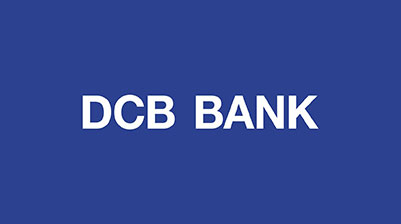
Women Empowerment & Chid Welfare
Societe Generale - Rugby in India
Through project 'Rugby in India', Societe Generale’s mission is to provide training support to the budding talent in rural areas by giving them a platform to play the sport in the Olympic Games. The project began in January 2016, as Societe Generale and Rugby in India reached out to over 1,00,000 children from across the country. Using the medium of Rugby, the project aims to improve lives by providing equal opportunity to all and promote health awareness, accelerate psychological healing in rural areas and providing opportunities to the underprivileged.
The ‘Get Into Rugby’ program works at breaking the perceptions and stereotypes, encouraging equal participation opportunities. The project aims at instilling the values of the Rugby, creating a learner-centred environment wherein each participant can learn outside of the classroom. The total number of players enrolled in India's 'Get Into Rugby' (GIR) programme has increased from 18,490 in 2012 to 103,226 in 2016. These children come through the programme and represent their respective states and the national team, at various tournaments.
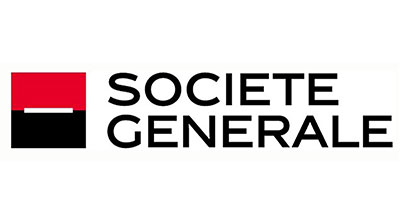
Sports
Go Sports Foundation - Para Champions Programme
The Para Champions Programme by GoSports Foundation was instituted to bring structure, planning and vision to the Indian Paralympic movement and to promote sport as a medium of self-empowerment amongst the differently-abled in India. As a first step, it sought to support some of India’s elite differently-abled athletes on their Paralympic journeys. The project supported 18 para-athletes in the first year and is a long-term project to change the para-sports narrative in the country.
One of the ways in which it aims to do this is by highlighting incredible stories of achievements of Paralympians to promote sport amongst the differently-abled in India. In the immediate term, the project made a meaningful difference in the lives of these 18 sportspersons, and empowered them on their efforts to qualify and win medals for India at the 2016 Paralympic Games in Rio de Janeiro and beyond. It saw success when 11 of the 18 athletes selected made it to the largest ever Paralympic contingent of 19 athletes.
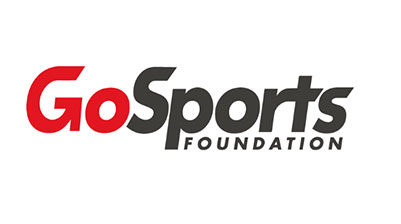
Animal Welfare
Animal Rahat - Animal Rahat’s Community-Led Animal Birth Control and Anti-Rabies (ABC & AR) Program
‘Animal Rahat’s Community-led Animal Birth Control and Anti-Rabies (ABC & AR) Program’ is spread across in three districts of Maharashtra – Sangli, Solapur, Satara and Kolhapur. These 13 villages are from three districts of their operational areas. The project was started in 2014-15, and continues to spay and neuter all dogs (approximately 5,000) in 50 intensive villages within next five years.
The ABC & AR Program has been able to successfully operate 1,191 dogs from 13 villages in Maharashtra. On an average, the achievement of the project is 92% against total surveyed 1,328 dogs. The main beneficiaries have been the dogs and village community. The NGO faces hurdles in implementing the project, such as convincing Gram Panchayats for monetary assistance. As part of the project, Animal Rahat also conducts regular training for its staff members on humane dog catching methods.
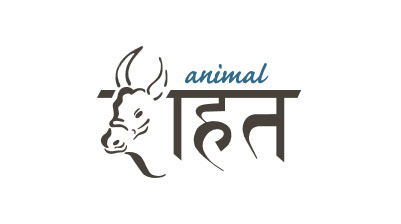
Social Welfare And Growth Awards
Captain AD Manek
For Developing, Contributing & Empowering Positive Change in Aviation
Mr. B. Singh (Ex. IES)
For Contribution in Social Development & Promoting Education
Mr. Zahid Vijapura
For Ethical & Sustainable Value Developer/Development Practices
Mr. Sadique Yaqoob Babla
For Ethical Entrepreneurial & Social Accomplishments in Healthcare
Dr. Tushar Vinod Deoras
For Social Empowerment of Children Through Education & Counseling
Mr. Krishna Somayaji
For Innovative Entrepreneurship in Information Technology
Mr. Kaushik Palicha
For Ethical Entrepreneurship in Chemicals
Mr. Vinay Kumar Reddy Nuvvuru
For Empowering Social Change Through Education & Inspiring Contribution in Education
Mr. Mehttab Siddiqui
For Outstanding Contribution in Social & Economic Development
Social Welfare And Growth Awards
Sports
S.V EduSports Pvt. Ltd. - EduSports In-school PE & Sports Programme
Established in 2009, EduSports aims at imparting sports education partnering with schools to provide age-appropriate sports programmes for students, providing a holistic approach to the child’s overall development. The foundation believes in the importance of a good sports programme me, if implemented at the right age, helps in a well- rounded grown-up. Apart from physical fitness, life-skill learning in the ‘In-school PE (Physical Education) & Sports Programme me’ enables the student to develop as self- dependent
The curriculum-based education Programme me includes built-in assessment checks and evaluation to monitor the productive output for the students enrolled. EduSports continues to implement a successful model of sports education programme me, accomplishing desired results.

Education and Skill Training
Let’s Do Some Good Foundation - Bridging Gaps in Education: A BEETF (Bangalore Effective Education Task Force) Project
Founded in 2013, Let’s Do Some Good Foundation believes in conjoining the efforts of various organisations working towards similar goals. The foundation believes despite numerous efforts at the ground level to bring education to the underprivileged, the optimum utilisation of resources and efforts is possible only through collaboration and teamwork
Underprivileged children face an uncertain future due to lack of access to formal education. Under BEETF, the foundation initiated a voluntary consortium of 65+ organisations, which focus on bringing out-of-school children into formal education. Let’s Do Some Good aims to bridge the gap between existing programme run by various institutions and focus the efforts in a systematic method, where the efforts made are effective as well as constructive.

Women and Child Welfare
Gabriel Project Mumbai - Love2Learn
Gabriel Project Mumbai works for the helpless children living in slums and poor rural areas of India with the concept ‘Triad of Children’s Development: education, health and nutrition’
Established in 2015, Love2Learn aims to provide equal learning and development opportunities for children in the Palghar District of Maharashtra. Due to poor nutrition and health care availability coupled with lack of parental guidance, Love2Learn provides nutritional meal, healthcare and education to children, for an overall growth and development.

Environment and Agriculture
Micro Insurance Academy - Climate Resilience through Risk Transfer
The Micro Insurance Academy (MIA) located at Delhi, was set up in 2007 with a vision of ‘helping communities manage risks from the ground up’. It is a project of Sarvajan Unnati Bodhini (SUB) Charitable Trust working in research, training and implementation of microinsurance in India. MIA provides technical assistance through assessment of local risks, helping communities choose their solutions through awareness creation and insurance education, capacity development for operationalization and hand-holding once a scheme is set up.
In the project ‘Climate Resilience through Risk Transfer’, MIA piloted innovative micro insurance solutions for health, livestock, crop and climate change related risks. This project is being implemented in two districts of Bihar and one district of Maharashtra, which are flood and drought prone, respectively. The project is the first of its kind in providing composite risk covers through a participatory approach.

Health and Sanitation
Indian Development Foundation (IDF) - Project Hygiene 12 (pH12)
India’s 88 percent of menstruating women have no access to sanitary pads. Women in rural India use sand, ashes and straw among many other harmful objects instead of sanitary pads making them extremely prone to health disorders including infections and cancer. In its attempt to address the issue, IDF launched Project Hygiene 12 or 'pH 12’ in 2015.
Under the project, pads are distributed at low cost. In addition, vocational guidance to the child and family helps sensitization towards menstrual hygiene instead of disregarding the issues. IDF has been able to reduce the harmful means of menstrual hygiene management. In the initial year, the project reached, 1340 girls and procured 35,220 pads. In 2016 -17, the organisation aims to empower 10,000 girls with pH12 across India
